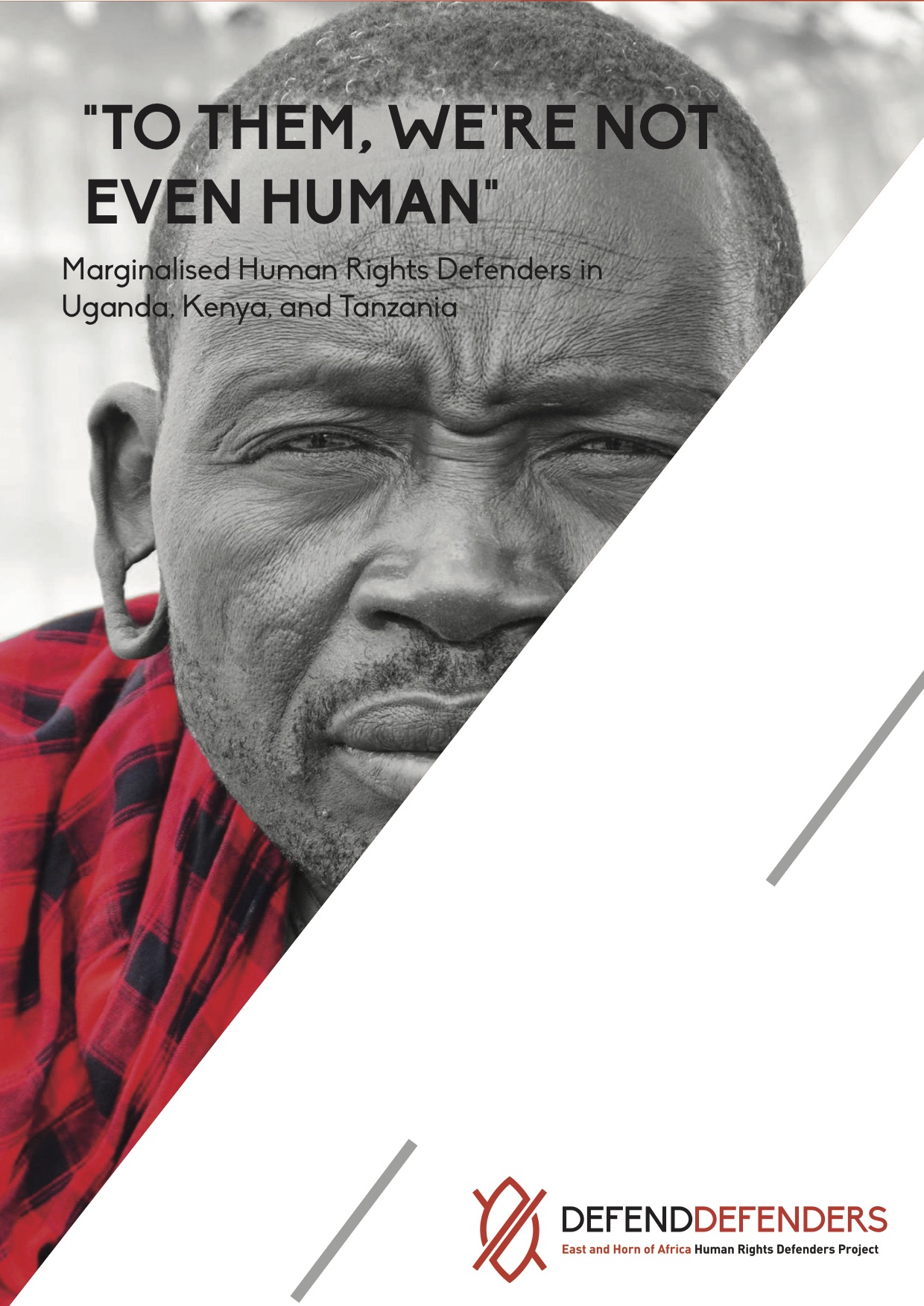As the UN’s main human rights body, the Human Rights Council, is due to meet and discuss a resolution on environmental human rights defenders (HRDs) next month, DefendDefenders outlines what we expect from the Council and suggests a number of elements that should be part of the resolution.
The briefing paper we publish today builds on our December 2018 report on marginalised HRDs, ‘To Them, We’re Not Even Human’ – in particular its first section, which addresses the situation and needs of indigenous HRDs in Uganda, Kenya, and Tanzania.
In this briefing paper, we:
(1) Highlight the situation of environmental HRDs, who work to protect human rights relating to the enjoyment of a clean, healthy, safe and sustainable environment. They do so in a context where pressure on biodiversity and competition for natural resources increase, which puts many of these defenders at risk. They face stigmatisation, intimidation, threats, physical attacks from state and non-state actors, and judicial harassment. Some, including women HRDs and indigenous HRDs, face intersecting forms of discrimination, threats, and violence.
(2) Stress that environmental HRDs need to be recognised and supported. Their work is based on the recognition that human rights are intimately linked with protection of the environment, ecosystems, and biodiversity. Environmental HRDs play a legitimate and essential role in protecting environmental rights and ensuring that the corporate sector abides by its business responsibility to respect human rights.
Because environmental HRDs work on issues relating to natural resources, ecosystems and livelihoods, they also defend the cultural rights of members of indigenous communities, whose way of life is intertwined with their natural environment.
(3) Outline the protection needs of environmental HRDs. As impunity for attacks against them is widespread, the upcoming resolution should condemn the restrictions and attacks they face, and condemn impunity for such attacks.
It should urge states to hold those responsible to account. It should also outline recommendations for states and business enterprises, and stress that any attack against environmental HRDs is an attack against environmental rights themselves.
(4) Discuss the nexus between environmental HRDs, environmental rights, and civic space. In particular, we reiterate that an open civic space (based on freedoms of expression, assembly and association and citizens’ right to participate in the conduct of government and public affairs) is vital to the protection of both environmental rights and environmental HRDs.
States should create and maintain a safe and enabling environment in which environmental HRDs can operate free from hindrance and insecurity.
For more information, please see the briefing paper.

